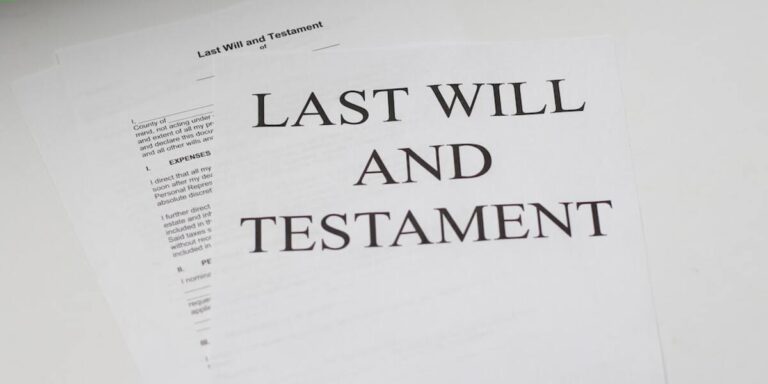Estate Planning For Avoiding Probate Costs
Are you concerned about the potential costs and complications that can arise from the probate process? Look no further, because “Estate Planning For Avoiding Probate Costs” is here to provide you with the knowledge and tools necessary to navigate the intricacies of estate planning. This comprehensive guide will walk you through the process of estate formation, offering valuable insights and strategies to minimize probate costs. Don’t let the fear of probate expenses burden you any longer. Take control of your estate and secure your financial future by contacting the expert estate planning lawyer listed on our page for a consultation. It’s time to protect your assets and ensure a smooth transition for your loved ones.
Understanding Estate Planning
What is estate planning?
Estate planning refers to the process of legally arranging and organizing your assets and belongings during your lifetime and after your death. It involves creating a comprehensive plan that outlines how your assets will be managed, distributed, and protected, as well as addressing important decisions such as appointing guardians for minor children and outlining healthcare and financial wishes in case of incapacity.
Why is estate planning important?
Estate planning is essential for individuals from all walks of life, regardless of the size of their estate. It allows you to have control over your assets and ensures that your wishes will be carried out after your passing. Without a proper estate plan in place, the state’s intestacy laws will determine how your estate will be distributed, which may not align with your wishes.
What are the benefits of estate planning?
-
Asset Protection: Estate planning allows you to protect your assets from creditors, lawsuits, or any other potential claims, ensuring that they are preserved for your loved ones.
-
Probate Avoidance: Proper estate planning enables you to minimize or entirely avoid the costly and time-consuming probate process. Probate is the legal proceedings that validate and administer a deceased person’s will, and it can be a lengthy and expensive process that can tie up assets for months or even years.
-
Incapacity Planning: Estate planning allows you to appoint trusted individuals to make healthcare and financial decisions on your behalf in the event of your incapacity. This ensures that your wishes are followed and reduces the burden on your loved ones.
-
Minimizing Taxes: By using certain estate planning strategies, you can minimize the amount of taxes your estate and beneficiaries may have to pay, allowing more of your assets to pass to your loved ones.
Common misconceptions about estate planning
-
Estate planning is only for the wealthy: Many people believe that estate planning is only necessary for individuals with substantial wealth. However, estate planning is essential for individuals of all income levels to ensure their assets are distributed according to their wishes and to protect their loved ones.
-
Writing a will is enough: While having a will is an important part of estate planning, it is not sufficient on its own. A comprehensive estate plan includes a variety of legal documents and strategies to address various aspects of your life, such as incapacity, asset protection, and tax planning.
-
Estate planning is only for the elderly: It is never too early to start estate planning. Accidents and unexpected illnesses can happen to anyone at any age, and having a comprehensive estate plan in place ensures that your wishes are carried out even if the unthinkable happens.
Probate Costs: An Overview
What is probate?
Probate is the legal process by which a deceased person’s will is validated, assets are distributed, and debts are paid. Probate typically involves court proceedings, which can be time-consuming, costly, and often open to public scrutiny. The specific probate process and requirements vary from state to state.
Understanding probate costs
Probate costs include various fees and expenses that arise during the probate process. These may include court filing fees, attorney fees, executor fees, appraisal fees, and accountant fees, among others. The exact costs will depend on the complexity of the estate, the value of the assets, and the degree of conflict among beneficiaries or creditors.
Factors influencing probate costs
Several factors can influence the total cost of probate:
-
Size and complexity of the estate: Larger and more complex estates typically require more extensive legal and administrative work, resulting in higher probate costs.
-
Disputes among beneficiaries: If there are conflicts or disagreements among beneficiaries or creditors, it can lead to prolonged legal battles and increased costs.
-
State laws: Different states have different probate laws and fee structures, which can impact the overall costs.
-
Executor compensation: The executor, who is responsible for managing the estate during the probate process, may be entitled to compensation, which is a percentage of the estate’s value. This can add to the probate costs.

This image is property of images.unsplash.com.
Importance of Avoiding Probate Costs
Understanding the financial implications of probate
Probate can be a costly process, and these costs can significantly reduce the value of your estate. By avoiding probate, you can ensure that the maximum amount of your assets will be passed on to your loved ones, rather than being consumed by legal fees and administrative expenses. This can help provide financial security for your beneficiaries and allow them to benefit from your hard-earned assets.
Avoiding unnecessary expenses
By implementing an effective estate plan, you can minimize or eliminate the need for probate altogether. By doing this, you can save your loved ones from the burden of probate costs and ensure a more efficient transfer of your assets. This can provide peace of mind knowing that your loved ones will not be burdened with unnecessary financial strain during an already difficult time.
Protecting privacy and minimizing delays
Probate is a public process, meaning that anyone can access the court records and learn about the details of your estate. By avoiding probate, you can maintain the privacy of your financial affairs and keep sensitive information confidential. Additionally, probate can be a lengthy process, causing delays in the distribution of assets to your beneficiaries. By bypassing probate, you can expedite the transfer of your assets and provide immediate financial support to your loved ones when they need it most.
1. Establishing a Living Trust
What is a living trust?
A living trust, also known as a revocable trust or inter vivos trust, is a legal document that allows you to transfer your assets into a trust during your lifetime. As the creator of the trust, known as the grantor or settlor, you maintain control over the assets in the trust and can amend or revoke the trust at any time. Upon your death or incapacitation, the assets in the trust are managed and distributed according to the terms you have specified.
Benefits of a living trust for probate avoidance
One of the primary benefits of a living trust is its ability to bypass the probate process. Since the assets in the trust are held outside of your estate, they are not subject to probate proceedings. This allows for a more efficient and private transfer of assets to your beneficiaries, helping to minimize costs, delays, and potential disputes.
The process of setting up a living trust
To establish a living trust, you will typically work with an estate planning attorney who will help you draft the trust document and ensure that it complies with state laws. You will need to transfer ownership of your assets into the trust, which may include real estate, bank accounts, investments, and personal property. Once the trust is fully funded, you will need to sign the trust document in the presence of a notary public. It is important to review and update your trust regularly to ensure that it reflects your current wishes and circumstances.
2. Joint Ownership of Assets
What is joint ownership?
Joint ownership refers to the legal arrangement where two or more individuals own an asset together, typically with right of survivorship. There are different forms of joint ownership, including joint tenancy and tenancy by the entirety, depending on the type of asset and the relationship between the owners.
Advantages of joint ownership for probate avoidance
Jointly owned assets transfer directly to the surviving owner(s) upon the death of one owner, without going through probate. This can be particularly useful for assets such as real estate, bank accounts, and investment accounts. It allows for a seamless transition of ownership and can help avoid probate costs and delays.
Important considerations
While joint ownership can be a useful probate avoidance strategy, it is important to consider potential drawbacks. Joint ownership may expose the asset to the creditors or legal issues of the other owner(s) and can complicate matters in case of divorce, disagreement, or death. It is important to carefully evaluate your specific circumstances and consult with an estate planning professional before implementing joint ownership as an estate planning strategy.
3. Beneficiary Designations
Importance of beneficiary designations
Beneficiary designations are a way to specify who will receive certain assets upon your death. Common examples of assets with beneficiary designations include life insurance policies, retirement accounts, and certain bank or investment accounts. By designating beneficiaries, you can ensure that these assets pass directly to the intended individuals, bypassing probate.
Assets suitable for beneficiary designations
Assets that typically allow for beneficiary designations include:
- Life insurance policies
- Annuities
- Retirement accounts (e.g., IRAs, 401(k)s)
- Pay-on-Death (POD) bank accounts
- Transfer-on-Death (TOD) brokerage accounts
It is important to review and update your beneficiary designations regularly, especially after major life events such as marriage, divorce, birth of a child, or the death of a beneficiary.
Updating and reviewing beneficiaries
To ensure that your beneficiary designations accurately reflect your wishes, it is essential to review and update them regularly. Changes in personal circumstances such as marriage, divorce, birth, or death may require updates to your beneficiary designations. Failing to update these designations can result in unintended consequences or disputes among family members. Therefore, it is wise to consult with an estate planning attorney to ensure that your beneficiary designations align with your overall estate plan.

This image is property of images.unsplash.com.
4. Gifting
Strategic gifting for probate avoidance
Gifting is a valuable estate planning strategy that can help you reduce the size of your taxable estate while transferring assets to your loved ones during your lifetime. By gifting assets, you can effectively remove them from your estate, potentially reducing estate taxes and probate costs. For larger estates, gifting can be an effective way to minimize tax liability while ensuring a smooth transition of assets.
Gift tax considerations
When gifting assets, it is important to be aware of the gift tax rules. Each person has an annual gift tax exclusion, which allows them to gift a certain amount to each recipient without incurring gift tax. For 2021, the annual gift tax exclusion is $15,000 per recipient. Gifts beyond this annual exclusion may trigger gift tax, although there are lifetime exemptions available. Consulting with an estate planning attorney can help you navigate the gift tax rules and optimize your gifting strategy.
Potential downsides to gifting
While gifting can be an effective strategy for probate avoidance, there are some potential downsides to consider. Once you have gifted an asset, it is no longer under your control, and you may no longer have access to its income or appreciate its value. Additionally, gifting certain assets, such as real estate or appreciated securities, may result in capital gains tax consequences for the recipient when they sell the asset. It is crucial to carefully weigh the pros and cons of gifting and consult with an estate planning attorney before implementing a gifting strategy.
5. Pay-on-Death (POD) and Transfer-on-Death (TOD) Accounts
What are POD and TOD accounts?
Pay-on-Death (POD) and Transfer-on-Death (TOD) accounts are financial arrangements that allow you to designate beneficiaries to receive the account’s assets upon your death. These accounts are commonly used for bank accounts, certificates of deposit, and brokerage accounts. By designating beneficiaries, these assets can bypass probate and be transferred directly to the beneficiaries.
Advantages and limitations of POD and TOD accounts
The main advantage of POD and TOD accounts is that they provide a simple and cost-effective way to transfer assets to beneficiaries outside of probate. They do not require complex legal documents or processes, making them an attractive option for individuals seeking probate avoidance. However, it is important to note that these accounts do not provide the level of control and flexibility that other estate planning strategies, such as living trusts, offer. Additionally, the beneficiaries of POD and TOD accounts have immediate access to the assets upon your death, which may not always align with your intentions or the best interests of the beneficiaries.
Appropriate assets for these types of accounts
POD and TOD accounts are suitable for assets such as:
- Bank accounts
- Certificates of deposit (CDs)
- Stocks, bonds, and other securities held in brokerage accounts
For other assets, such as real estate or vehicles, alternative probate avoidance strategies may need to be considered. Consulting with an estate planning attorney can help you determine the most appropriate estate planning tools and strategies for your specific assets and goals.

This image is property of images.unsplash.com.
6. Minimizing and Managing Debts
An overview of estate debts
When a person passes away, their debts become part of their estate and need to be paid off before the remaining assets can be distributed to beneficiaries. Estate debts can include mortgages, car loans, credit card debts, medical bills, and any other outstanding financial obligations. Unresolved debts can delay the probate process and reduce the value of the estate.
Strategies for reducing estate debts
There are several strategies you can implement to minimize and manage estate debts:
-
Life insurance: Having a life insurance policy can provide financial resources to pay off outstanding debts upon your death, reducing the burden on your estate.
-
Credit counseling and debt management: Seeking professional assistance from credit counselors or debt management agencies can help negotiate manageable payment plans and potentially reduce the overall amount of debt.
-
Negotiating with creditors: Communicating with creditors and negotiating reduced settlements or payment plans can help alleviate the financial strain on your estate.
-
Prioritizing debt payments: By prioritizing high-interest or secured debts, you can minimize interest payments and potential loss of assets. It is essential to understand the legal and tax implications of different types of debts and consult with professionals to determine the most appropriate payment strategy.
Prioritizing debt payments
When it comes to paying off estate debts, it is crucial to prioritize the order of repayment. Secured debts, such as mortgages or car loans, should take precedence to protect valuable assets from potential foreclosure or repossession. Unsecured debts, such as credit card debts or medical bills, can be addressed after securing the more critical assets. By working with an estate planning attorney or financial advisor, you can develop a debt repayment plan that maximizes the value of your estate and minimizes financial burdens for your beneficiaries.
8. Consultation with Estate Planning Lawyer
Importance of seeking professional advice
Estate planning is a complex and nuanced area of law. Consulting with an experienced estate planning lawyer ensures that your estate plan reflects your unique circumstances and goals. A knowledgeable attorney can provide guidance on probate avoidance strategies, help navigate tax implications, and ensure compliance with state laws, maximizing the value of your estate and protecting your loved ones.
Choosing the right estate planning lawyer
When selecting an estate planning lawyer, it is essential to consider their experience, expertise, and reputation. Look for attorneys who specialize in estate planning and have a strong track record of successful client outcomes. Personal recommendations from friends, family, or trusted professionals can be valuable in finding the right attorney for your needs. Additionally, consider scheduling initial consultations with multiple attorneys to compare their approaches and determine who you feel most comfortable working with.
Preparing for a consultation
Before meeting with an estate planning lawyer, it is helpful to gather necessary documents and information, such as:
- A list of your assets and liabilities
- Information about your family members and potential beneficiaries
- Existing estate planning documents, such as wills or trusts
- Any specific concerns or questions you have about your estate plan
Having this information readily available will allow your consultation to be more productive and enable the attorney to provide tailored advice and recommendations based on your unique circumstances.
In conclusion, estate planning is a crucial step in safeguarding your assets, protecting your loved ones, and avoiding unnecessary probate costs. By understanding the various strategies available, such as establishing living trusts, utilizing joint ownership, utilizing beneficiary designations, gifting, and using POD/TOD accounts, you can carefully plan for the distribution of your estate and minimize the financial and emotional burdens on your loved ones. Consulting with an experienced estate planning attorney is the best way to ensure that your estate plan is comprehensive, tailored to your needs, and effectively addresses your goals. Take the first step today by reaching out to an estate planning lawyer to schedule a consultation and start the process of securing your legacy.








